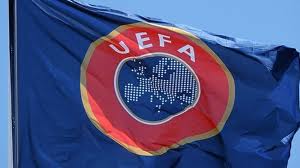By Andrew Warshaw
January 10 – A year after a court in Malta described match-fixing as “a cancer at the heart of football,” UEFA has banned six Maltese under-21 football players for offences in relation to two European qualifying matches.
An investigation carried out by UEFA involved the March 2016 qualifiers for the European Under-21 Championship against Montenegro and the Czech Republic.
UEFA imposed lifetime bans on Emanuel Briffa and Kyle Cesare for acting in a “manner that is likely to exert an unlawful or undue influence on the course and/or result of a match or competition with a view to gaining an advantage for himself or a third party.”
The other four players were suspended for “not immediately and voluntarily informing UEFA” about being approached about fixing. Samir Arab received a two year ban, Ryan Camenzuli 18 months and both Llywelyn Cremona and Luke Montebell a year each.
In a statement, UEFA said that “it takes this opportunity to emphasise its commitment to rid football of the scourge of match-fixing – described by UEFA president Aleksander Ceferin as “a disease that attacks football’s very core”.
Maltese FA general secretary Angelo Chetcuti did not mince his words at a news conference after the punishments were announced.
“These sanctions are a hammer blow for the image of Maltese football,” Chetcuti said. “I must admit it is a disappointment for Maltese football in general. We were also a bit surprised at the final outcome of the judgement but UEFA’s decision remains what it is at this point in time. The Malta Football Association also asked UEFA to be present during the actual hearing way back in November, but this request was immediately turned down by Europe’s governing football body.”
“We have got to get back on our feet and show our true integrity. We cannot give in. I feel really disappointed but at the same time we should use this case as an incentive to pull up our socks and work even harder to protect the ‘Beautiful Game’ in Malta. “
Back in August 2016 both Cesare and Briffa were acquitted of match-fixing related to the game against Montenegro by a local court.
Chetcuti tried to explain the discrepancy. “In a law court, a person is found guilty of a particular charge if he is proven to have committed the crime beyond reasonable doubt,” he said. On the other hand, a sporting disciplinary body needs only to have comfortable satisfaction that the crime took place to find a person guilty.”
In an unrelated case, Nigerian-born Uchenna Anyanwu, a naturalised Maltese citizen and then manager of local top-flight club Pembroke FC, was banned for life last May by the Maltese FA relating to two domestic games.
At the start of the case in February, the court was told match-fixing was “killing Maltese football”.
“The families follow the fortunes of their teams with passion, loyalty and devotion,” said the sitting magistrate . “Match fixing betrays the trust, all that confidence and it’s like a cancer at the heart of football.”
Chetcuti said it was vital Maltese authorities don’t simply resign themselves to the fact that fixing is rife in the country.
“It would be a huge mistake if we had to throw in the towel … since at the end of the day it’s the game that will come out as the loser,” he told reporters. “It’s important that we keep as our main priority to maintain the values of integrity in the game that are central to our sport.”
Contact the writer of this story at moc.l1744180409labto1744180409ofdlr1744180409owedi1744180409sni@w1744180409ahsra1744180409w.wer1744180409dna1744180409


